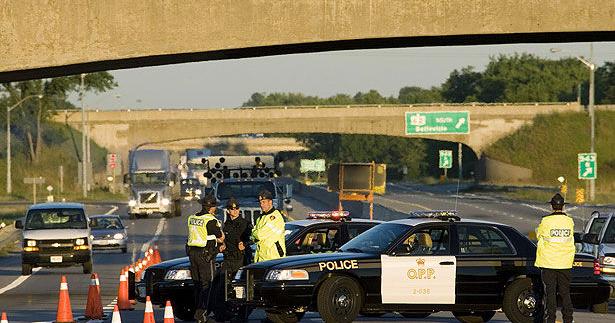It was on identified First Nation Territory land.
In particular it was on the Culbertson Tract, taken by the crown in 1837, who chose to ignore Treaty 3½, and they've been disputing it since then . Both the CN and CP mainlines pass through this tract, for which neither has legal title to, given subsequent court rulings.
The courts ruled a decade ago that the land belongs to the First Nations, and the government has been offering a cash settlement; but no agreement was reached at that time.
The timing of this particular protest was related to events in BC, but they have acted independently in the past - such as when they've closed both the 401 and CN tract.
Canada’s busiest highway was shut down for 11 hours today and rail lines were closed to passengers and freight for even longer as a rogue Mohawk protester ignored calls for a peaceful day of action by aboriginals and set out to disrupt the country’s economy.

www.thestar.com
Since 2020, a partial settlement has been reached, but much of the land is still in dispute. Personally, I'd have not waited 200 years for a settlement. And in 2020 I was saddened by the racist comments I heard from some that the police and government should force the blockade to end. We've discussed this identified FNT land before in one of the threads.





